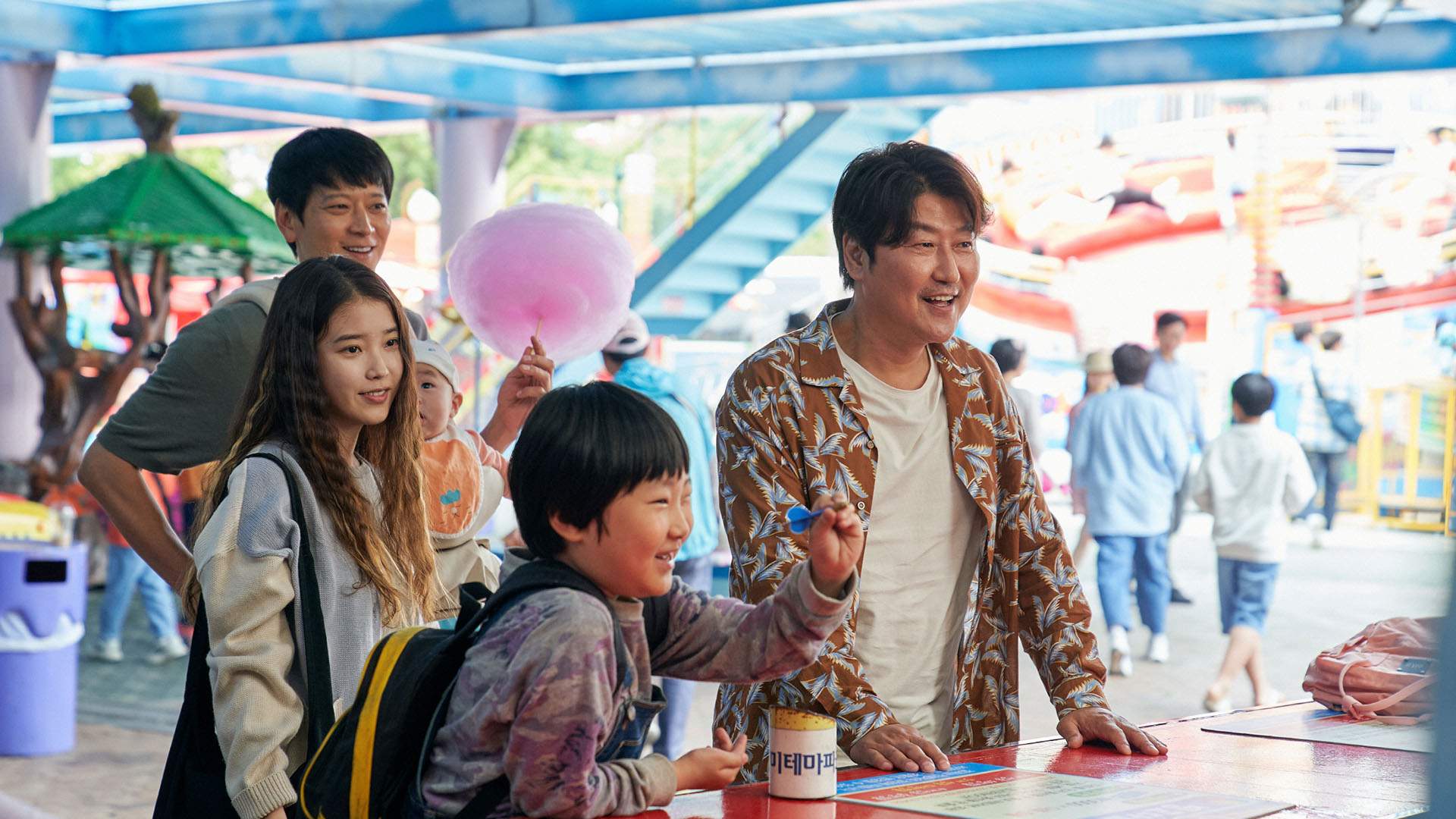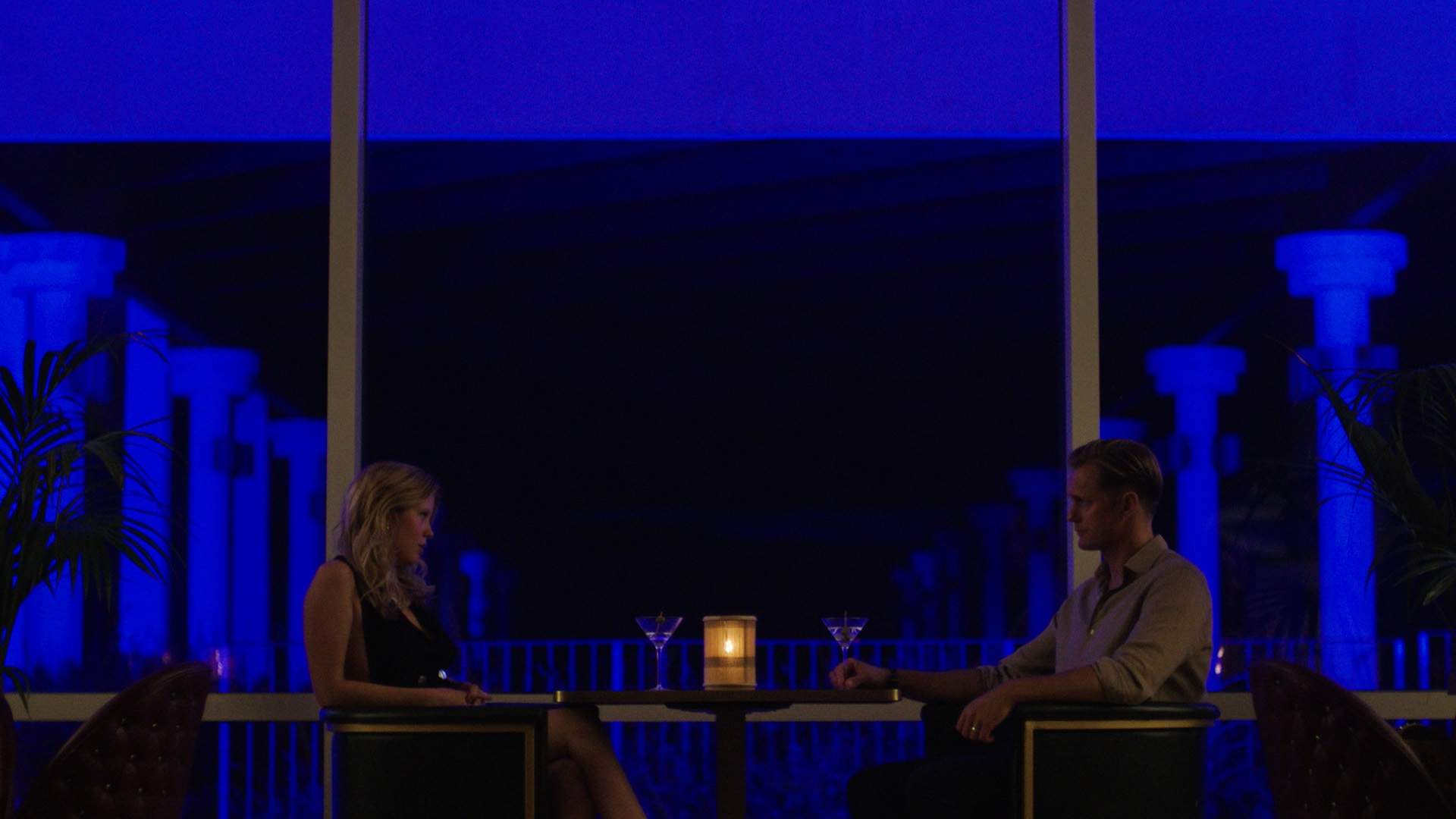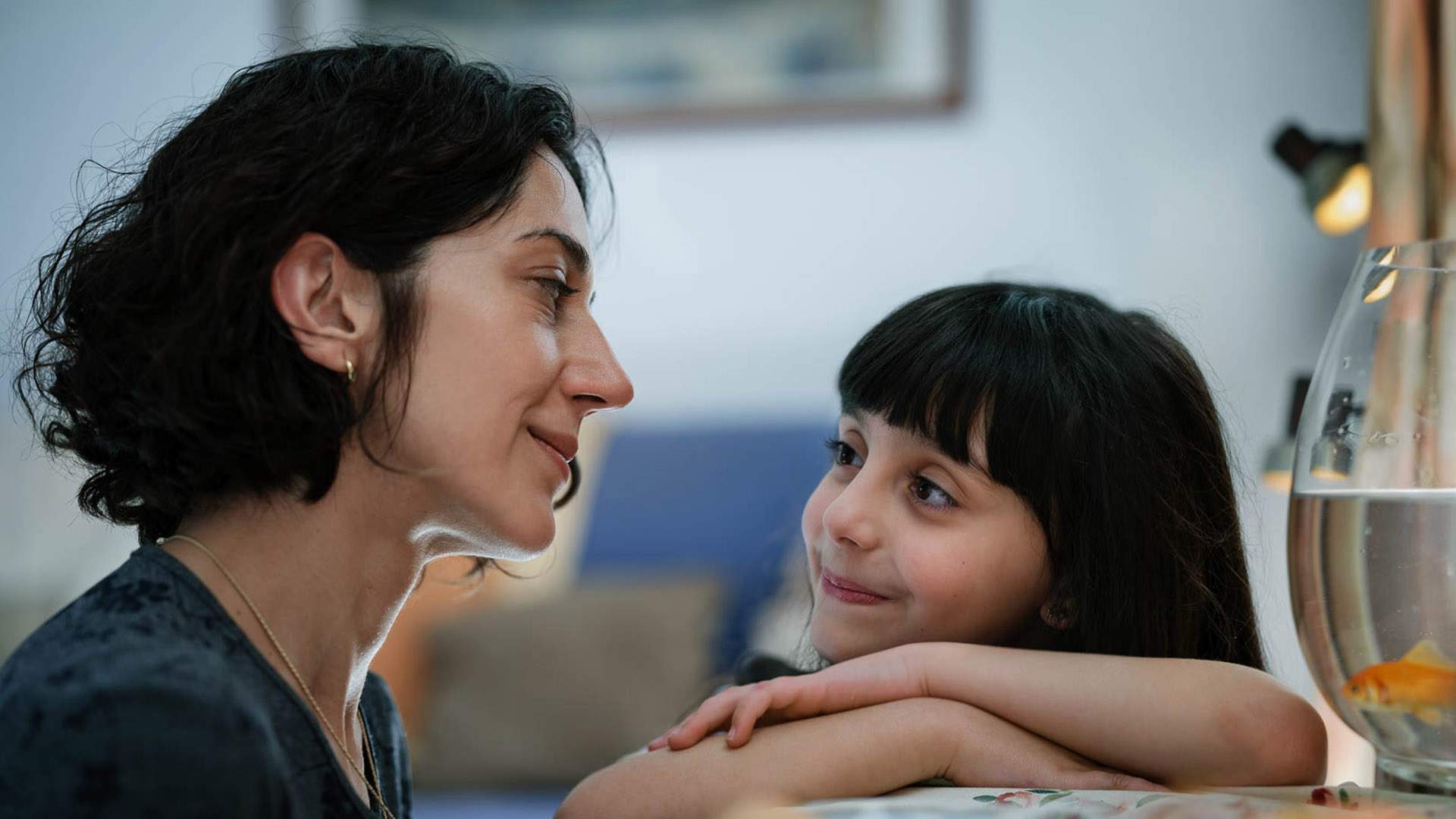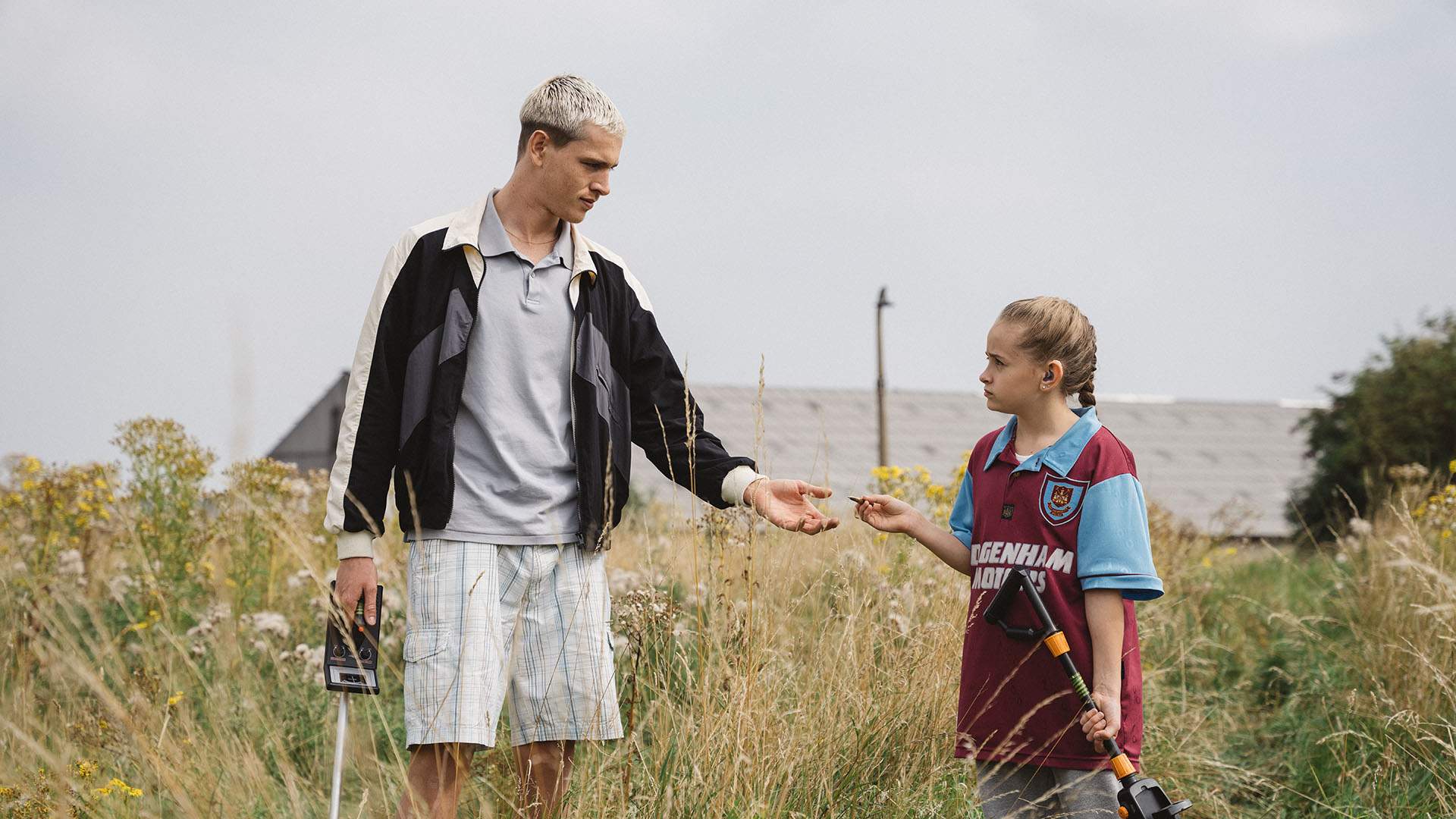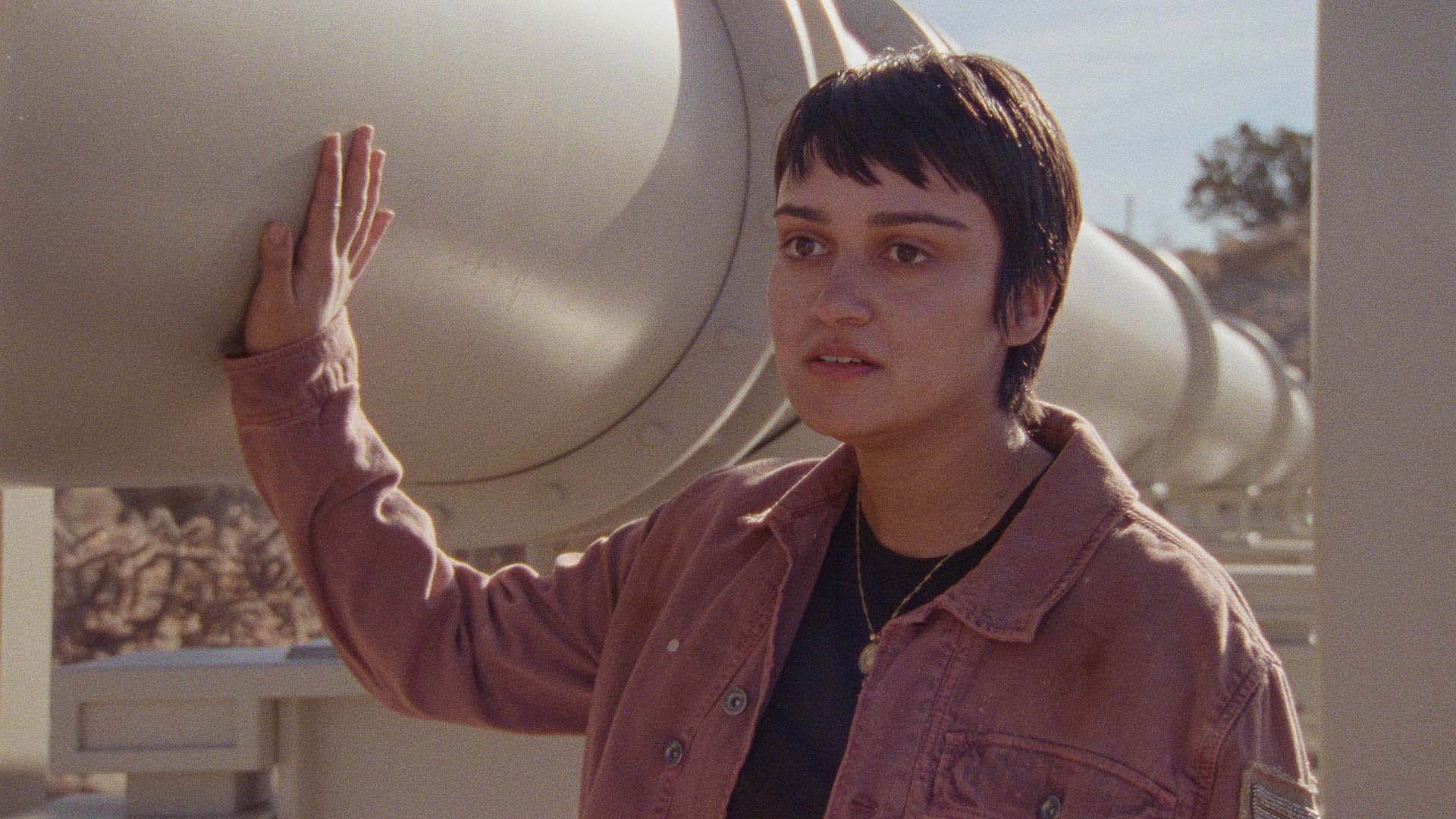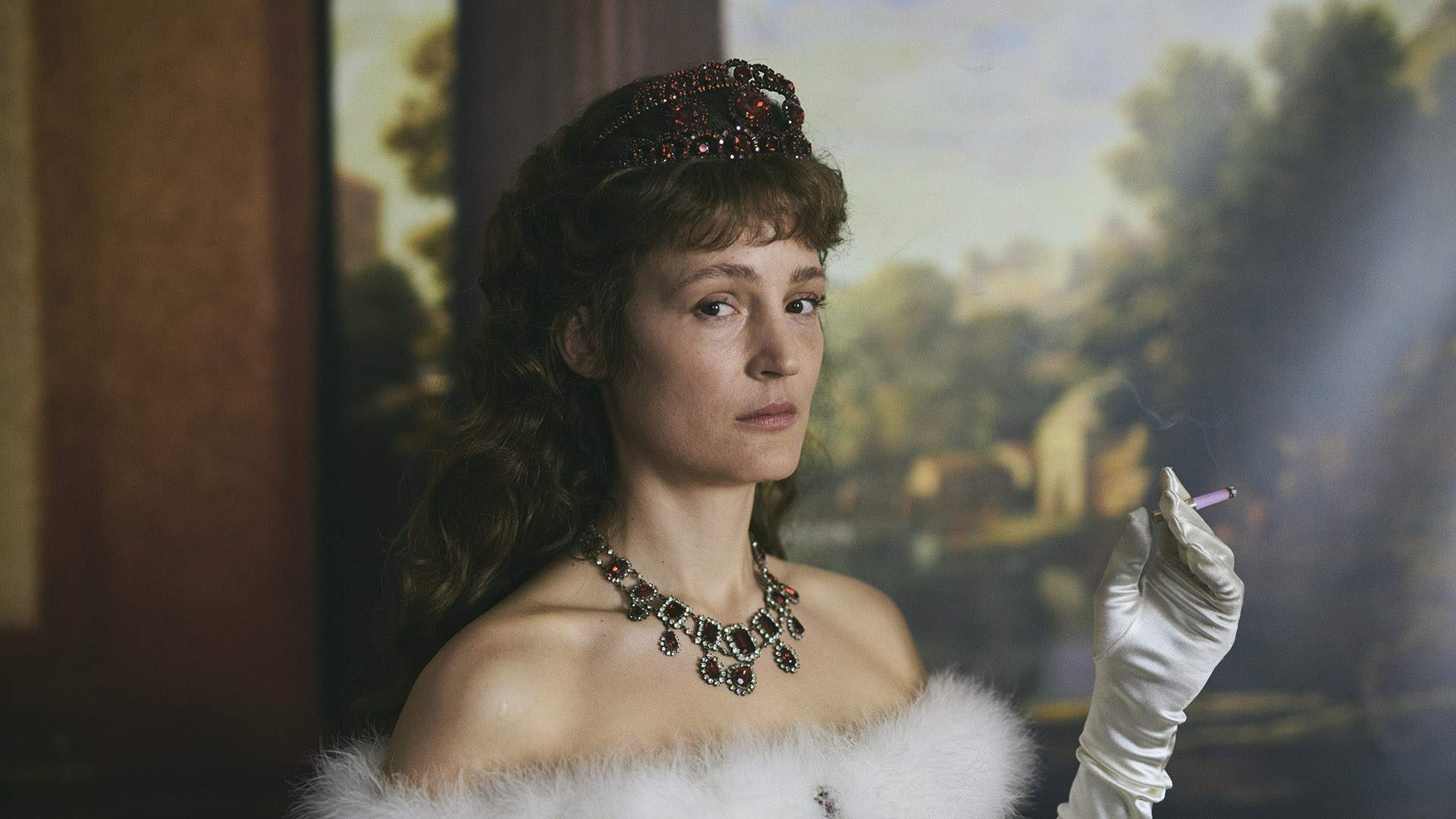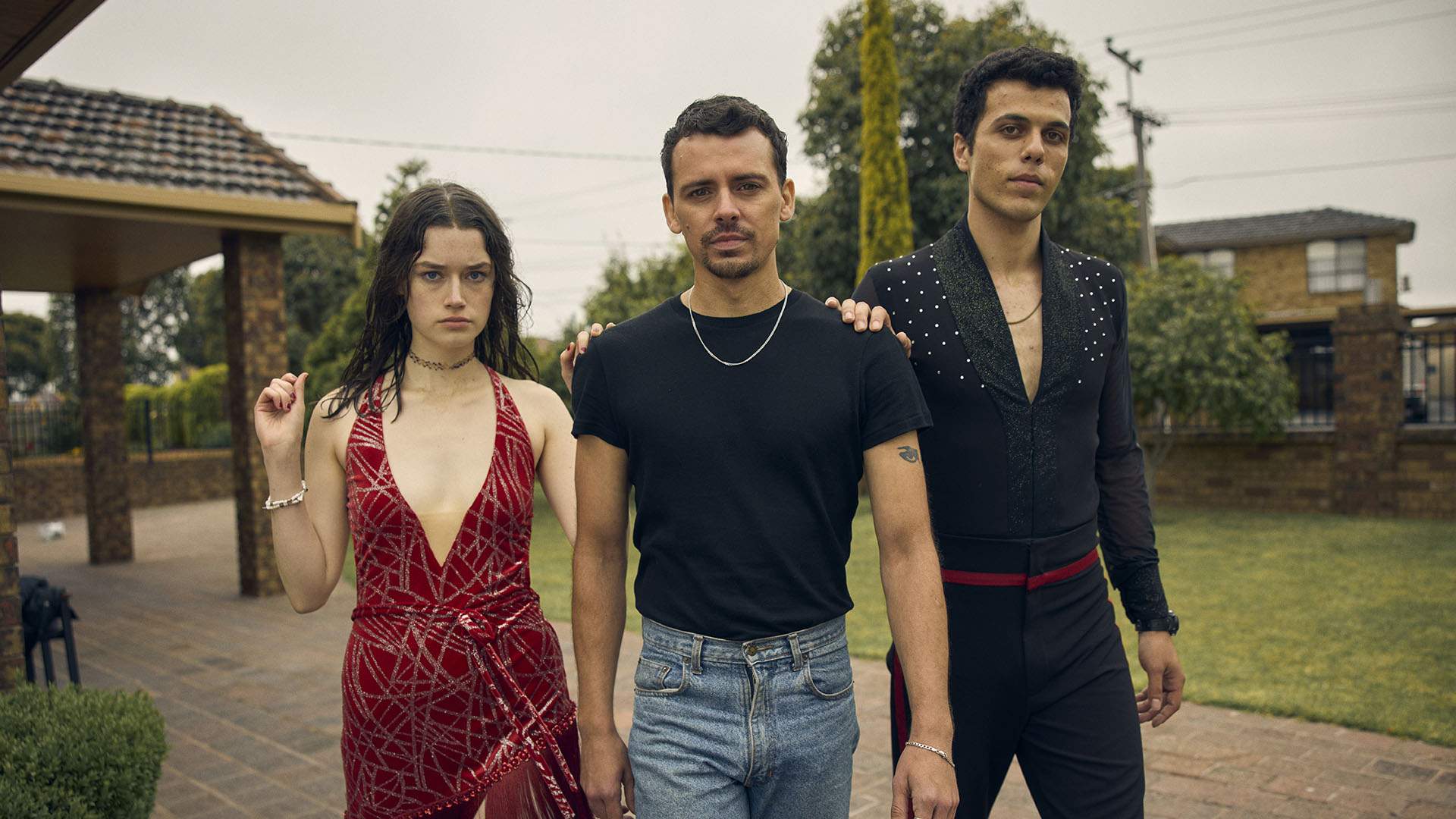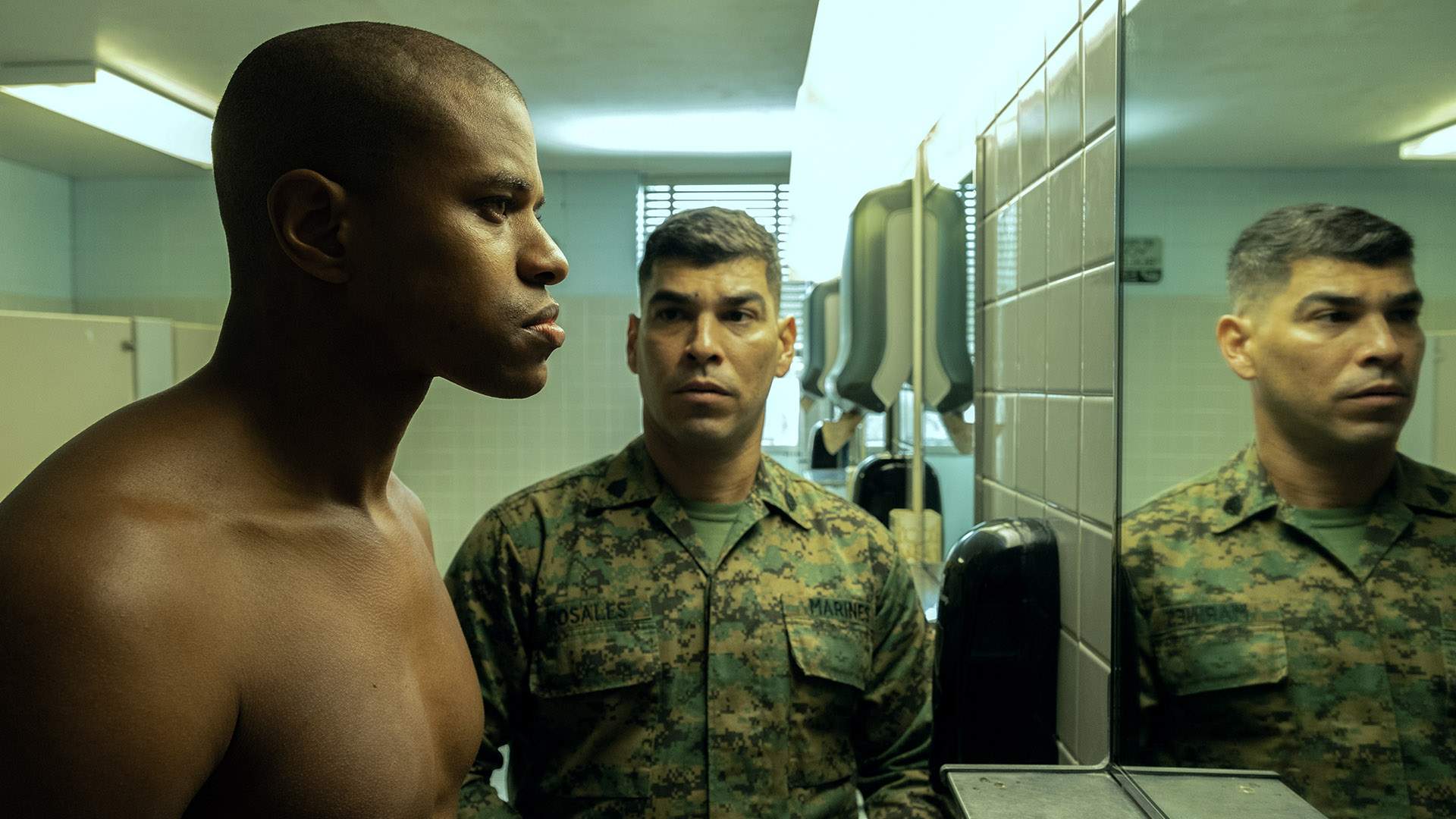The 15 Best Movies Hardly Anyone Saw in 2023
Add a warped Alexander Skarsgård-starring mindbender, Sydney Sweeney's best performance, Japanese great Hirokazu Kore-eda making his first Korean film and more to your catch-up list.
Do you guys ever think about all the new movies that didn't get as much love while everyone was seeing Barbie and the rest of 2023's huge box-office hits? If you haven't so far, the time to do so is now.
This year's's slate of cinema releases is like the year's biggest blockbuster, serving up multiple variations for everyone. So, while The Super Mario Bros Movie, Oppenheimer, Guardians of the Galaxy Vol. 3, John Wick: Chapter 4, The Little Mermaid, Elemental and Fast X were among the typical successes (and 2022's Avatar: The Way of Water and Puss in Boots: The Last Wish as well), the massive money earners are just a fraction the flicks that've graced the silver screen over the last 12 months.
All of the aforementioned pictures made piles of cash from Australia audiences, and earned attention and chatter along the way. Elsewhere, stunning thrillers, warped mindbenders, thoughtful dramas, queer romances, propulsive action efforts, twisty delights and gorgeous animation also awaited — and they're worth catching up with ASAP. As we have since 2014 (see also: 2015, 2016, 2017, 2018, 2019, 2020, 2021 and 2022), we've picked a heap of must-see movies that you likely didn't see in 2023, because that's what the cinema takings tell us, but you should definitely add to your list. Thanks to our 15 selections, don't say that you don't have anything new to watch.

HOW TO BLOW UP A PIPELINE
Every story is built upon cause and effect. One thing happens, then another as a result, and so a narrative springs. Inspired by Andreas Malm's non-fiction book of the same name, How to Blow Up a Pipeline isn't just strung together by causality — it's firmly, actively and overtly about starting points, consequences and the connections between. Here's one source for this impassioned tale about determined and drastic environmental activism: the warming world. Here's an originator for that, too: fossil fuels, humanity's reliance upon them and the profits reaped from that status quo. Now, a few outcomes: pollution, catastrophic weather changes, terminal illnesses, stolen and seized land, corporate interests prioritised over ecological necessities, and a growing group that's driven to act because existence is at stake. Turning a text subtitled Learning to Fight in a World on Fire into a fictional feature, How to Blow Up a Pipeline joins all of the above, stressing links like it is looping string from pin to pin, and clue to clue, on a detective's corkboard.
In his second feature after 2018's smart and effective camgirl horror Cam, writer/director Daniel Goldhaber isn't trying to be subtle about what dovetails in where. With co-screenwriters Jordan Sjol (a story editor on Cam) and Ariela Barer (also one of How to Blow Up a Pipeline's stars), he isn't attempting to rein in the film's agenda or complexity. This movie tells the tale that's right there in its name, as eight people from across America congregate in Texas' west with a plan — an octet of folks who mostly would've remained loosely connected, some strangers and others lovers and friends, if they weren't desperate to send a message that genuinely garners attention. Goldhaber's latest is explosive in its potency and thrills, and startling in its urgency, as it focuses on a decision of last resort, the preparation and the individual rationales before that. How to blow up hedging bets on-screen? That's also this tightly wound, instantly gripping, always rage-dripping picture.
Read our full review.

INFINITY POOL
Making his latest body-horror spectacle an eat-the-rich sci-fi satire as well, Brandon Cronenberg couldn't have given Infinity Pool a better title. Teardowns of the wealthy and entitled now seem to flow on forever, glistening endlessly against the film and television horizon; however, the characters in this particularly savage addition to the genre might wish they were in The White Lotus or Succession instead. In those two hits, having more money than sense doesn't mean witnessing your own bloody execution but still living to tell the tale. It doesn't see anyone caught up in cloning at its most vicious and macabre, either. And, it doesn't involve dipping into a purgatory that sports the Antiviral and Possessor filmmaker's penchant for futuristic corporeal terrors, as clearly influenced by his father David Cronenberg (see: Crimes of the Future, Videodrome and The Fly), while also creating a surreal hellscape that'd do Twin Peaks great David Lynch, Climax's Gaspar Noe and The Neon Demon's Nicolas Winding Refn proud.
Succession veteran Alexander Skarsgård plunges into Infinity Pool's torments playing another member of the one percent, this time solely by marriage. "Where are we?", author James Foster asks his wife Em (Cleopatra Coleman, Dopesick) while surveying the gleaming surfaces, palatial villas and scenic beaches on the fictional island nation of Li Tolqa — a question that keeps silently pulsating throughout the movie, and also comes tinged with the reality that James once knew a life far more routine than this cashed-up extravagance. Cronenberg lets his query linger from the get-go, with help from returning Possessor cinematographer Karim Hussain. Within minutes, the feature visually inverts its stroll through its lavish setting, the camera circling and lurching. As rafters spin into view, then tumble into the pristine sky, no one in this film's frames is in Kansas anymore. Then, when fellow guest Gabi (Mia Goth, Pearl) gets James and Em into a tragic accident, which is followed by arrests, death sentences and a wild get-out-of-jail-free situation, no one is anywhere they want to be, either.
Read our full review.

BROKER
No matter how Hirokazu Kore-eda's on-screen families come to be, if there's any actual blood between them, whether they're grifting in some way or where in the world they're located, the Japanese writer/director and Shoplifters Palme d'Or winner's work has become so beloved — so magnificent, too — due to his care and sincerity. A Kore-eda film is a film of immense empathy and, like Like Father, Like Son, Our Little Sister, After the Storm and The Third Murder also in the prolific talent's past decade, Broker is no different. The setup here is one of the filmmaker's murkiest, with the feature's name referring to the baby trade. But showing compassion and humanity isn't up for debate in Kore-eda's approach. He judges the reality of modern-day life that leads his characters to their actions, but doesn't judge his central figures. In the process, he makes poignant melodramas that are also deep and thoughtful character studies, and that get to the heart of the globe's ills like the most cutting slices of social realism.
It isn't just to make a buck that debt-ridden laundromat owner Sang-hyun (Song Kang-ho, Parasite) and orphanage-raised Dong-soo (Gang Dong-won, Peninsula) take infants abandoned to the Busan Family Church's 'baby box' — a chute that's exactly what it sounds like, available to mothers who know they can't embrace that part for whatever reason — then find good families to sell them to. There's a cash component, of course, but they're convinced that their gambit is better than letting children languish in the state system. In Kore-eda's usual kindhearted manner, Broker sees them with sensitivity. Even if blue hues didn't wash through the film's frames, nothing is ever black and white in the director's movies. The same understanding and tenderness flows towards mothers like So-young (Lee Ji-eun, Hotel Del Luna, aka K-Pop star IU), whose decision to leave Woo-sung (debutant Park Ji-yong) isn't easily made but puts Broker on its course.
Read our full review.

REALITY
Sydney Sweeney is ready for her closeup. Playwright-turned-filmmaker Tina Satter obliges. A household name of late due to her exceptional work in both Euphoria and The White Lotus, Sweeney has earned the camera's attention for over a decade; however, she's never been peered at with the unflinching intensity of Satter's debut feature Reality. For much of this short, sharp and stunning docudrama, the film's star lingers within the frame. Plenty of the movie's 83-minute running time devotes its focus to her face, staring intimately and scrutinising what it sees. Within Reality's stranger-than-fiction narrative, that imagery spies a US Air Force veteran and National Security Agency translator in her mid-twenties, on what she thought was an ordinary Saturday. It's June 3, 2017, with the picture's protagonist returning from buying groceries to find FBI agents awaiting at her rented Augusta, Georgia home, then accusing her of "the possible mishandling of classified information".
Reality spots a woman facing grave charges, a suspect under interrogation and a whistleblower whose fate is already known to the world. It provides a thriller of a procedural with agents, questions, allegations and arrests; an informer saga that cuts to the heart of 21st-century American politics, and its specific chaos since 2016; and an impossible-to-shake tragedy about how authority savagely responds to being held to account. Bringing her stage production Is This a Room: Reality Winner Verbatim Transcription to the screen after it wowed off-Broadway and then Broadway, Satter dedicates Reality's bulk to that one day and those anxious minutes, unfurling in close to real time — but, pivotally, it kicks off three weeks earlier with its namesake at work while Fox News plays around her office. Why would someone leak to the media a restricted NSA report about Russian interference in getting Donald Trump elected? Before it recreates the words genuinely spoken between its eponymous figure and law enforcement, Reality sees the answer as well.
Read our full review.

CORSAGE
Britain's two Queen Elizabeths have enjoyed their fair share of film and TV depictions, aided by Cate Blanchett, Judi Dench, Margot Robbie, Helen Mirren, Claire Foy, Olivia Colman, Imelda Staunton and more — to name just a few — but they're not the only royals of that first name to grace the screen. While the spelling differs slightly and she's played as more of a Diana-style people's princess in her latest stint in cinemas, Empress Elisabeth of Austria (also Queen of Hungary) has received several celluloid and pixel resurrections of her own. Corsage ranks among the best of them, as famed as Austria's Sissi films from the 50s are and as recently as Netflix's The Empress hit streaming, in no small part due to two other outstanding women. One is Luxembourgish actor Vicky Krieps (Bergman Island), who is shrewd, wry and wily as the Bavarian-born wife to Emperor Franz Joseph I. The other is Austrian writer/director Marie Kreutzer (The Ground Beneath My Feet), whose handsomely staged and smartly anachronistic feature is no mere dutiful biopic.
Corsage's lead casting is the dream it instantly seems on paper; if you're wondering why, see: Krieps' scene-stealing work opposite Daniel Day-Lewis in 2017's Phantom Thread. Here, she's been earning deserved awards — the Best Performance prize in the 2022 Cannes Film Festival's Un Certain Regard section among them — for a portrayal that never feels like she's stepping into someone else's shoes or jumping back to the past for a part. Krieps is, naturally. Also, given that Sissi lived between 1837–1898, viewers have no way of knowing how close this characterisation is. But Krieps' fierce, dynamic and layered performance goes far further than easy impersonation, or providing a period-appropriate rendering of the Empress based on how history dictates that women of the era behaved (or what flicks set then or focusing on regal women back then have served up before). Corsage is a portrait of a lady, after all, and not of a time.
Read our full review.

SCRAPPER
Trust a movie that's all about connection and pluck to boast plenty itself. The second of cinema's 2023 father-daughter pictures out of Britain that's directed by a first-time feature filmmaker called Charlotte — the first: Charlotte Wells' Aftersun — Charlotte Regan's Scrapper couldn't be better cast or any more fearless about telling its tale. Starring as 12-year-old Georgie, a pre-teen striving to survive on her own with any help from adults or the authorities after her mum Vicky's (Olivia Brady, The Phantom of the Open) death from cancer, debutant Lola Campbell is an electrifying find. Fresh from playing a model in Triangle of Sadness, Harris Dickinson is now an absent rather than ideal dad, a part that he infuses with equal doses of soul, sorrow, charisma and cheek. And, recognising that she's hardly skipping through new narrative territory, writer/director Regan heaps on character and personality. This is a perky, bright and bubbly take on a kitchen-sink story.
There's sadness in 2023's Sundance Film Festival Grand Jury Prize-winner, too, with Scrapper scoring its award in the fest's World Cinema Dramatic Competition. There's anger as well, especially about a society that has Georgie convinced that staying solo in the council flat she lived in with her mother — a space that she's now fastidious about keeping exactly as it was before heartbreak struck — is her top choice. But Regan sees colour amid the grey, plus possibilities alongside struggles. Her view is clear-eyed but never steely. Regan unblinkingly witnesses the realities of working-class existence, yet also spies joy and whimsy, and similarly isn't afraid of getting surreal. This is a flick with talking spiders — cue literal bubbles, of the speech variety — alongside scrapping to get by.
Read our full review.

SHAYDA
Whether or not Noora Niasari was ever explicitly told to write what she knew, the Iranian Australian filmmaker has taken that advice to heart. Her mother listened to the same guidance first, even if it was never spoken to her, either. The latter penned a memoir that has gone unpublished, but helped form the basis of the powerful and affecting Shayda. This account of a mum and her daughter attempting to start anew in a women's shelter doesn't entirely stick to the facts that writer/director Niasari and her mother lived through. The Sundance-premiering, Melbourne International Film Festival-opening, Oscar-contending feature — it's Australia's entry for Best International Feature Film at the 2024 Academy Awards — isn't afraid to fictionalise details in search of the best screen story. Still, the tale that's told of courage, resilience, rebuilding lives and finding a new community is deeply and patently personal. Perhaps even better, it's inescapably authentic.
Niasari peers back at being barely of primary-school age and making a new home. Fleeing to a women's shelter is the only option that the film's eponymous figure (Zar Amir Ebrahimi, 2022's Cannes Best Actress-winner for Holy Spider) has to get away from the abusive Hossein (Osamah Sami, Savage River), whose controlling nature is matched by that of their patriarchal culture. So, Shayda leaves with six-year-old Mona (debutant Selina Zahednia). As she waits for her divorce proceedings to go through — a complicated task under Iranian law and customs — she seeks refuge at a secret site overseen by the caring Joyce (Leah Purcell, The Lost Flowers of Alice Hart). Even surrounded by kindness and filled with desperation for a better future, every iota of Shayda's decision is fraught and tense; Niasari starts the film with Mona at an airport being told what to do if she's ever there with her father, should he try to take her not only away from her mum but also back to Iran.
Read our full review, and our interview with Noora Niasari.

OF AN AGE
You Won't Be Alone isn't just the name of Macedonian Australian writer/director Goran Stolevski's debut feature, which hit cinemas in 2022. It's also a phrase that applies now that his second film is here. Of an Age initially premiered in the same year as well, bowing in Melbourne International Film Festival's opening-night slot — and, while it tells of growing up queer in 90s Melbourne, falling in love for the first time, then sifting through the aftermath a decade later, it's a glorious companion piece to its predecessor. No one is chosen by a sorceress here. The place isn't Macedonia, the period isn't the 19th century and supernatural shapeshifting isn't part of the narrative. But even just a mere duo of movies into his helming career, Stolevski makes pictures that profoundly ruminate upon two of life's purest truths: that absolutely everything changes and, consequently, nothing completely lasts forever.
1999 is inching towards becoming Y2K when Of an Age begins, and 17-year-old Nikola aka Kol (Elias Anton, Australia Day) is only hours from taking to the floor at a Melbourne dance championship. That's how his day is meant to pan out, at least, and what he's preparing for when the film meets him practising his smooth ballroom moves in his suburban garage — conjuring up visions of John Travolta in a flick made famous two decades prior, in fact. Kol's ordinary morning fever breaks, however, thanks to friend and dance partner Ebony (Hattie Hook, Savage River) and her bender of an evening. She's awoken on the beach in Altona with no idea where she is, scrounging up change for the payphone call to say she thinks she'll miss the recital unless Kol can pick her up. To attempt to make his big performance, he has to convince Ebony's older brother Adam (Thom Green, Eden) to play taxi — and he's still all aflutter with anxiety, and just the inertia of being so keyed up from endeavouring to sort things out, when he slides into the twentysomething's brown car and feels sparks fly instantly.
Read our full review.

THE ORIGIN OF EVIL
Laure Calamy doesn't star in everything that's hitting screens big and small from France right now, but from Call My Agent! and Only the Animals to Full Time and The Origin of Evil, audiences can be forgiven for feeling otherwise. Calamy isn't new to acting, either, with a resume dating back to 2001; however, her in-demand status at present keeps showering viewers with stellar performances. Indeed, The Origin of Evil is a magnificent Calamy masterclass. She's playing a part while playing a part, and she makes both look effortless. The Antoinette in the Cévennes César Best Actress-winner is also a picture of unnerving determination and yearning, and resourcefulness and anxiety, too, as a seafood-factory worker usually tinning anchovies, then packing herself into a mix of Knives Out, Succession, The Talented Mr Ripley and Triangle of Sadness.
Unleashing in-fighting upon a wealthy family residing on Côte d'Azur island Porquerolles, this instantly twisty and gripping thriller from Faultless and School's Out writer/director Sébastien Marnier (who collaborates on the screenplay with Amore mio scribe Fanny Burdino) takes a setting that'd do The White Lotus proud as well, then wreaks havoc. On the agenda in such lavish and scenic surroundings, which come filled with an unsettling menagerie of taxidermied animals: witnessing savage squabbling over who'll inherit a business empire, bathing in the kind of bitterness that only the bonds of blood among the affluent and entitled can bring, more than one person wishing that patriarch Serge Dumontet (Jacques Weber, The World of Yesterday) would shuffle off this mortal coil and, just as crucially, not everything being what it seems.
Read our full review.

FINGERNAILS
In the world of Fingernails, 'Only You' isn't just a 1982 pop song that was made famous by Yazoo, is easy to get stuck in your head, and is now heard in this film in both French and English. It's also the philosophy that the first English-language feature by Apples filmmaker Christos Nikou has subscribed its characters to as it cooks up a fascinating sci-fi take on romance. In a setup somewhat reminiscent of Elizabeth Holmes' claims to have revolutionised blood testing (see: The Dropout), Fingernails proposes an alternative present where love can be scientifically diagnosed. All that's needed: an extracted plate of keratin, aka the titular digit-protecting covering. At organisations such as The Love Institute, couples willingly have their nails pulled out — one apiece — then popped into what resembles a toaster oven to receive their all-important score. Only three results are possible, with 100 percent the ultimate in swooning, 50 percent meaning that only one of the pair is head over heels and the unwanted zero a harbinger of heartbreak.
When Fingernails begins, it's been three years since teacher Anna (Jessie Buckley, Women Talking) and her partner Ryan (Jeremy Allen White, The Bear) underwent the exam, with the long-term duo earning the best possible outcome — a score that's coveted but rare. Around them, negative results have led to breakups and divorces as society's faith is placed not in hearts and souls, but in a number, a gimmick and some tech gadgetry (one of the sales pitches, though, is that finding out before getting hitched will stop failed marriages). As their friends go the retesting route — satirising the need for certainty in affairs of the heart pumps firmly through this movie's veins — Anna hasn't been able to convince Ryan to attend The Love Institute as a client. She's soon spending her days there, however, feeding her intrigue with the whole scenario as an employee. When she takes a job counselling other pairs towards hopeful ever-after happiness, she keeps the career shift from her own significant other. Quickly, she has something else she can't tell Ryan: a blossoming bond with her colleague Amir (Riz Ahmed, Sound of Metal).
Read our full review.

THE INSPECTION
If war is hell, then military boot camp is purgatory. So told Full Metal Jacket, with Stanley Kubrick's masterpiece making that observation echo and pierce with the relentlessness of machine-gun fire. Now, The Inspection stresses the same point nearing four decades later, plunging into the story of a gay Black man enlisting, then navigating the nightmare that is basic training. This too is a clear-eyed step inside the United States Marine Corps, but drawn from first-time fictional feature filmmaker Elegance Bratton's own experiences. New Yorker Ellis French (Jeremy Pope, One Night in Miami) is the Pier Kids documentarian's on-screen alter ego — an out queer man who has spent a decade from his teens to his mid-20s homeless after being kicked out by his ashamed mother Inez (Gabrielle Union, Strange World), and pledges his post 9/11 freedom away for a place to fit in, even if that means descending into a world of institutional homophobia and racism.
It would've been easy for Bratton to just sear and scorch in The Inspection; his film is set in 2005, "don't ask, don't tell" was still the US military forces' policy and discrimination against anyone who isn't a straight white man is horrendously brutal. Life being moulded into naval-infantry soldiers is savage anyway; "our job is not to make Marines, it's to make monsters," says Leland Laws (Bokeem Woodbine, Wu-Tang: An American Saga), Ellis' commanding officer and chief state-sanctioned tormentor. And yet, crafting a film that's as haunting as it is because it's supremely personal, Bratton never shies away from Ellis' embrace of the Marines in his quest to work out how he can be himself. There's nothing simple about someone signing up for such heartbreaking anguish because that's the only option that they can imagine, but this stunning movie is anything but simple.
Read our full review.

SISU
Lean, mean and a Nazi-killing machine: that's Sisu and its handy-with-a-hunting-knife (and pickaxe) protagonist alike. This stunningly choreographed Finnish action film's title doesn't have a literal equivalent in English, but writer/director Jalmari Helander's (Rare Exports: A Christmas Tale) latest effort means stoic, tenacious, resolute, brave and gritty all in that four-letter term; again, both the movie and the man at its centre fit the description. Former soldier Aatami Korpi (Jorma Tommila, also Rare Exports: A Christmas Tale) has one aim. After he strikes gold and plenty of it in Lapland's far reaches, he's keen to cash in. For someone who has already lost everyone and everything to World War II, that requires transporting his haul; however, the year is 1944 and German troops still lurk even as the combat winds down. Accordingly, getting those gleaming nuggets from the wilderness to a bank means facing a greedy and unrelenting platoon led by Helldorf (Aksel Hennie, The Cloverfield Paradox), who can spy a payday and an exit strategy for himself.
Before anything yellow shimmers, Nazi-filled tanks are sighted, a single shot is fired or a blow swung, Sisu explains its moniker as "a white-knuckled form of courage and unimaginable determination". Text on-screen also advises that "sisu manifests itself when all hope is lost." As a film, Sisu may as well be shorthand for John Wick meets Inglourious Basterds meets Django, the iconic 1966 spaghetti western that Quentin Tarantino riffed on with Django Unchained, too — plus all of that meets the work of legendary spaghetti western director Sergio Leone as well. The carnage is that balletic. The Nazi offings are that brutal, roguish and inventive. And valuing deeds over dialogue as a lone figure dispatches with nefarious forces against an unforgiving landscape, and no matter what they throw at him, is firmly the setup.
Read our full review.

COBWEB
When Song Kang-ho hasn't been starring in Bong Joon-ho's films, he's been featuring Park Chan-wook's and Kim Jee-woon's, plus Lee Chang-dong's and Hong Sang-soo's as well. One of Korea's acting greats boasts a resume filled with the country's directing greats — so getting the Memories of Murder, The Host, Thirst, Snowpiercer and Parasite star, plus Joint Security Area, Sympathy for Mr Vengeance, Lady Vengeance and Secret Sunshine talent, to play a filmmaker for his The Good the Bad the Weird and The Age of Shadows filmmaker feels like perfect casting even before Cobweb starts spinning its reels. Song's career highlights are already many, complete with a Cannes Best Actor Award for working with Japan's Hirokazu Kore-eda in Broker. Here, he's reliably and rakishly charming in a movie-making ode and on-set farce.
For his own director Kim, Song plays a director Kim — but on-screen version Kim Ki-yeol is living in the 70s, and also in a rut. Once an assistant to a famed and acclaimed helmer who has passed away, now he's openly mocked by critics for his trashy fare in one of Cobweb's first scenes. He's made most of a masterpiece, however, or so he believes. The only thing that's required to ensure it's a complete classic is two more days to undertake re-shoots. His film is meant to be finished, but he's adamant that the cast and crew reteam (and his producer foot the bill) to ensure that the creative visions that keep haunting his dreams can become a feted triumph. Convincing everyone that he needs to isn't the only tricky feat, with challenges upon challenges unspooling the longer that the fictional Kim and his colleagues spend bustling.
Read our full review.

THE BLUE CAFTAN
In The Blue Caftan, a tailor's hands say everything that needs conveying about how he holds himself in the world. That garment-maker is Halim (Saleh Bakri, My Zoe), and he plies he trade in the Moroccan city of Salé, in a humble store overseen by his no-nonsense wife Mina (Lubna Azabal, Rebel). Refusing to use machines, Halim is meticulous in his work. He's patient, careful and thorough, as one needs to be in the painstakingly detailed job of hand-embroidering women's traditional tunics. As a result of his precision and artistry, he isn't short on customers — and that rigour and commitment seeps from him like breath whether he's letting Mina run the show; training Youssef (first-timer Ayoub Missioui), the apprentice brought on to help meet the demand for his exquisite wares; or finding ways to deal with his feelings, including the pull he feels towards his new protege.
For her sophomore feature after the also-tender and moving Adam, writer/director Maryam Touzani again makes a delicately layered and intricately woven film — a movie that digs deep into a subject considered taboo in Morocco, too, via an exceptionally well-observed triple character study. If her pictures say everything they need to about the filmmaker herself, then Touzani clearly values intimate and weighty connections, examining the needless pressures enforced by antiquated attitudes, the bonds that spring in such complex circumstances, and heartbreakingly poignant pictures about that list. She both appreciates and elicits sensitive performances, too, with Adam alum Azabal again superb under the helmer's gaze, and Bakri just as wonderful. It's no wonder that The Blue Caftan, with its resonant tale, rich cinematography and willingness to surprise while remaining emotionally raw as well, was chosen as Morocco's 2023 Best International Feature Oscar contender.

MARCEL THE SHELL WITH SHOES ON
Every couple has in-jokes, a valuable currency in all relationships, but only Jenny Slate and Dean Fleischer-Camp have turned a cute private gag into Marcel the Shell with Shoes On. The Parks and Recreation actor and the Fraud director are no longer together romantically, marrying and divorcing in the 13 years since they first gave the world the cutest talking shell anyone could've imagined; however, they've now reteamed professionally for an adorable film based on their 2010, 2011 and 2014 shorts. Marcel the Shell with Shoes On also gave rise to two best-selling children's picture books, unsurprisingly, following a familiar internet-stardom path from online sensation to print and now the big screen. Neither Slate and Fleischer-Camp's faded love nor their joint project's history are ignored by their footwear-sporting seashell's cinematic debut, either; in fact, acknowledging both, whether subtly or overtly, is one of the things that makes this sweet, endearing, happily silly, often hilarious and deeply insightful movie such an all-round gem.
That inside jest? A voice put on by Slate, which became the one-inch-high anthropomorphic Marcel's charming vocals. In Marcel the Shell with Shoes On's three initial mockumentary clips, the tiny critter chats to an unseen filmmaker chronicling his life, with earnestness dripping from every word. ("My name is Marcel and I'm partially a shell, as you can see on my body, but I also have shoes and a face. So I like that about myself, and I like myself and I have a lot of other great qualities as well," he advises in his self-introduction.) The same approach, tone and voice sits at the heart of Marcel the Shell with Shoes On's feature-length leap, of course, but so does a touching meditation upon loss, change and valuing what's truly important. Fleischer-Camp plays the movie's documentarian, mostly off-camera, who meets Marcel and his grandmother Connie (voiced by Isabella Rossellini, Cat Person) after moving into an Airbnb following a relationship breakup — and, yes, their work together becomes a viral phenomenon.
Read our full review.
